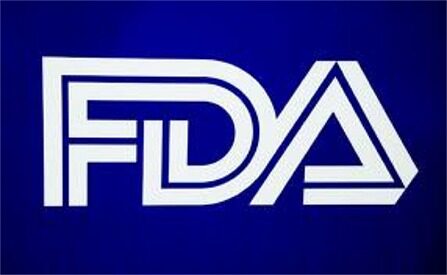
FDA Creates List Of Unlawfully Marketed Dietary Supplement Ingredients

Reasons for an ingredient’s inclusion on the list, according to Yiannas, include the ingredient not fitting the definition of a dietary ingredient, or the ingredient requiring a pre-market notification that was not submitted. That said, Yiannas stressed that inclusion on the list does not necessarily indicate safety concerns, which will be communicated separately. And the list will never stop evolving: New ingredients can be added as they are identified, and others can be removed as concerns are laid to rest.
“As the dietary supplement marketplace has grown,” Yiannas said in the release, “the introduction of new ingredients often raises complex questions involving science, policy, and the law. In the time it takes the FDA to make a final determination, consumers and industry might mistakenly conclude that a lack of action by the FDA indicates that these ingredients are lawful. This List is intended to get information to both consumers and industry more quickly. It also provides an opportunity for stakeholders to share information with us that they think might be relevant to our determination.”
As part of the ongoing effort to keep dietary supplements safe, Yiannas added, FDA is continuing to take action against companies marketing adulterated supplements. FDAissued 11 warning lettersto eight companies marketing products containing DMHA and three companies marketing products containing phenibut. DMHA, according to the constituent update regarding the warning letters, is either a new dietary ingredient for which FDA has not received a notification or an unsafe food additive. Phenibut does not meet the definition of a dietary ingredient and can be addictive, with severe side effects and withdrawal symptoms.
The Council for Responsible Nutrition (CRN) released a statement regarding the list. Andrew Shao, Ph.D., interim SVP of scientific & regulatory affairs at CRN, said: “CRN applauds the launch of FDA’s new Dietary Supplement Ingredient Advisory List. Protecting consumers from ingredients that appear to be unlawfully marketed in dietary supplements is a critical component of FDA’s regulatory oversight, and so we are pleased that a new platform to alert consumers more rapidly than in the past has been established. The new tool will allow FDA to exert greater regulatory enforcement in the face of limited resources. CRN stands strong with FDA in its fight against companies who are deliberately violating the law.”
Shao encouraged consumers to bookmark and regularly refer to the list, and encouraged the rest of the dietary supplement industry to embrace it, showing support for FDA’s efforts to preserve the balance between access and safety with regard to dietary supplements.
Shao added: “CRN is eager to collaborate with FDA as the agency unveils initiatives, like the List. In the meantime, we hope the agency’s announcement serves as a clear warning to bad actors in the fringes of our industry—the regulators are coming for you if you attempt to skirt the law.”
The Dietary Supplement Ingredient Advisory List can be foundhere. The list of companies that received warning letters for either DMHA or phenibut can be foundhere.

The editorial team at WholeFoods Magazine has decades of experiences reporting on natural products industry news, trends, and more. This national, monthly business-to-business magazine has been published continuously for nearly 40 years (the magazine was founded in 1977, and has been owned by Wainer Finest Communications since 1984). It is the longest-tenured media outlet of its kind in the natural products industry. The editorial focus at WholeFoods Magazine is, and always has been, on informing and educating members of the natural products industry.
The Magazine
Information
About Us
NOTE: WholeFoods Magazine is a business-to-business publication. Information on this site should not be considered medical advice or a way to diagnose or treat any disease or illness. Always seek the advice of a medical professional before making lifestyle changes, including taking a dietary supplement. The opinions expressed by contributors and experts quoted in articles are not necessarily those of the publisher or editors of WholeFoods.







